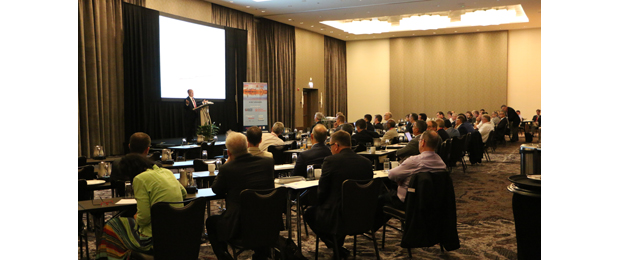From the opening keynote addresses delivered by Mark Mills of the Manhattan Institute discussing the Geopolitics of Energy; Chief Master Sergeant Bob Vasquez discussing the Truth About Leadership to our final speaker, Chicago radio talk show host, Dan Proft giving tips on how we can affect and influence change, the two-day event gave attendees a great deal of information to think about and process.
Attendees provided the following feedback about IPTS Americas: “ITPS Americas covered a lot of different topics covered in only two days. It provided a very good mix of technology, economics, politics and entertainment.” – “I really enjoyed the networking opportunities ITPS Americas afforded me.” – “ITPS Americas was a very worthwhile conference.” – “There was a good range of topics. I especially felt that the presentations on energy and regional economic drivers were good.”
Sponsored by the Industrial Heating Equipment Association in the United States, thanks goes to the sponsors who made ITPS Americas possible: Honeywell ICI, Nutec Bickley, SECO/WARWICK and Surface Combustion. ITPS Americas was powered by CECOF, heat processing magazine, Messe Düsseldorf, VDMA and ThermProcess.
(Source: Industrial Heating Equipment Association)

Inaugural ITPS Americas a great success
Kategorien: heat processing | Veranstaltungen
Autor: Redaktion
Datum: 16. Aug. 2016